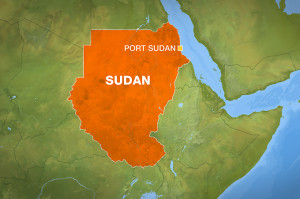Port Sudan – lying on the spectacular Red Sea coast – is a logistics hub that holds a visionary investment park and a key oil refinery, as well as acting as a strategic maritime gateway and potential tourism destination. Every year from Port Sudan – home to Sudan’s main seaport – around $4 billion worth of goods are exported, while annual imports to the tune of $7.5 billion are offloaded, making the harbor an integral part of the country’s economy.
As a trade hub, perhaps the most important facet of Port Sudan is its oil refinery. The site handles oil transported mainly from South Sudan, where it is refined and then shipped from the nearby docks around the world, helping the country earn billions worth in transit fees and exports.
In 2013, the Government of Sudan signed a Memorandum of Understanding with an Italian company to rehabilitate and upgrade the refinery in order to handle the increasing demand for oil products.
Port Sudan is also Sudan’s overwater link to the Middle East as well as a major crossing point for African Muslims travelling on their yearly pilgrimage to Mecca.
Complimenting the seaport is the Red Sea Free Trade Zone (RSFZ). Strategically located at a focal point which connects Port Sudan and the Port Sudan International Airport, the RSFZ began operations in 1999 to coincide with Sudan’s oil production boom.
“Port Sudan is linked by well-developed infrastructure including road, rail, and airports that facilitate the movement of goods and people,” says the Governor of Red Sea State.
“The free-trade zone not only serves just Port Sudan and the Red Sea but also all of Africa. Having the free-trade zone area means that imports and exports can move easily through this area.”
Having expanded over the last 15 years, the zone now plays host to a wide range of multi-economic activities, offering investment guarantees and tax incentives to its many tenants. In 2013 the government announced that it aims to attract 500 new investors to RSFZ in the coming years.
Meanwhile, the port as a whole is today undergoing major modernization and upgrading overseen by Sea Ports Corporation (SPC). President Al-Bashir has repeatedly announced intentions to make Port Sudan one of Africa’s top ports.
Rehabilitation of the harbour began in 2006 with the help of Chinese investments, while one of the most recent major developments was in 2011 after the construction of a new terminal with a capacity for 800,000 containers was completed, again aided by the Chinese.
Another major development for the area will be the Dakar-Port Sudan railway. While proposals are still ongoing, it will be one of the biggest projects ever undertaken in Africa when it is finally implemented, and a quantum leap in the area of land transportation and trade exchange on the continent, giving four landlocked countries access to the sea and providing them with a 10,100km long rail artery.
















